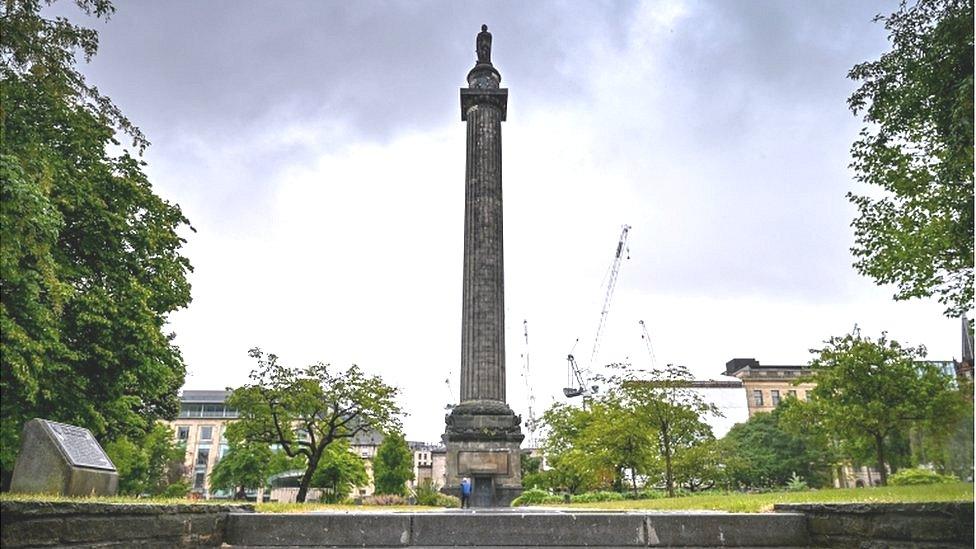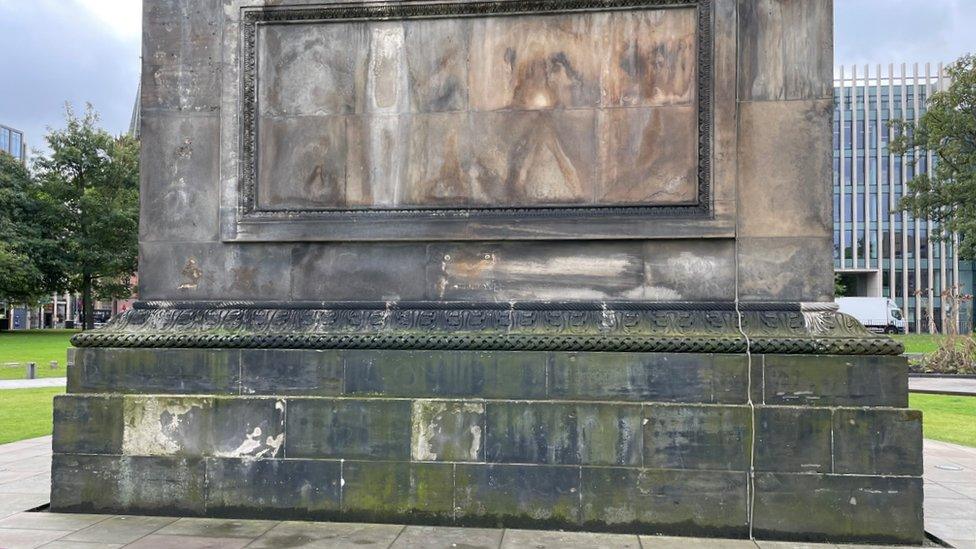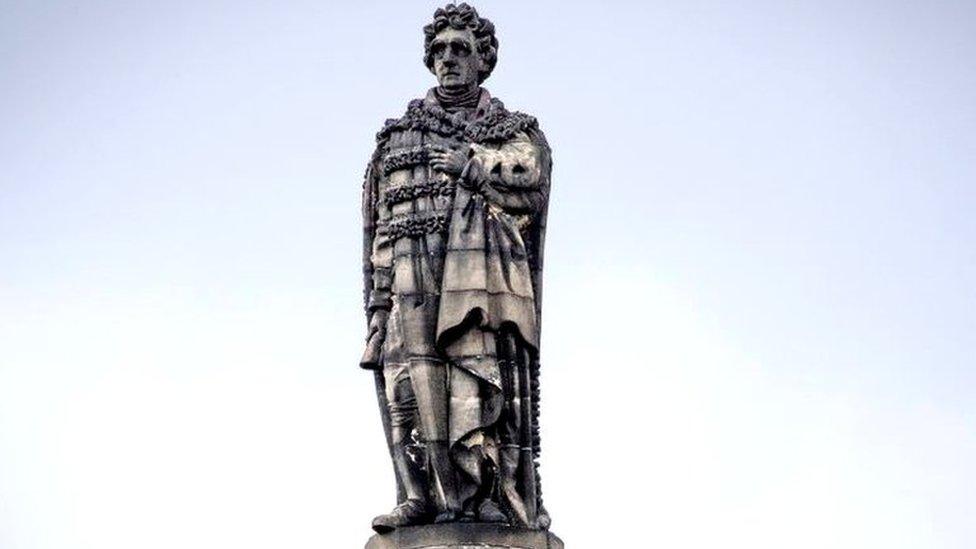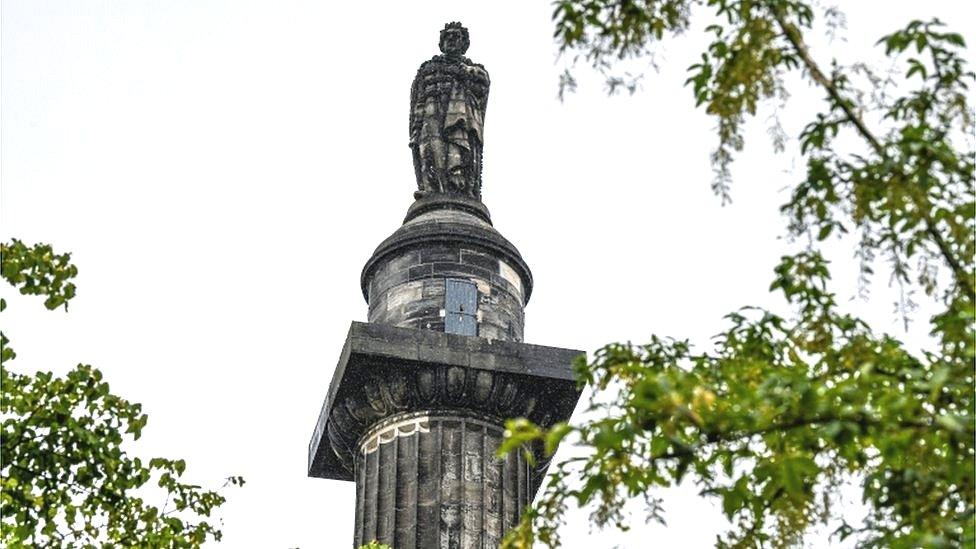Council threatens legal action over removal of slavery plaque
- Published

The statue of Dundas sits on a tall column in St Andrew Square
Edinburgh's council has threatened legal action against a descendant of Henry Dundas over the removal of a plaque linking him to slavery.
The plaque said the 18th century politician delayed the abolition of the Atlantic slave trade, resulting in the enslavement of half a million Africans.
It was removed from the Melville Monument last month by a group led by a Dundas family member.
They claim the plaque is misleading and the council had no right to install it.
Earlier this week Police Scotland said "no criminality was established" following an initial investigation.
City of Edinburgh Council said it was now "in legal correspondence" with Bobby Dundas and the Melville Monument Committee who have "been instructed to return the plaque and present a proposal to make good any damage to the monument caused by removal".
It said it "may consider legal action or further involving Police Scotland" if the demands are not met.
Mr Dundas said in a statement that the committee acted "completely within the law" and claimed it obtained "all the necessary permits" and ensured the owners of St Andrew Square "had no objection".

The controversial plaque was removed last month
The plaque, installed by the council, states the 1st Viscount Melville - the most powerful politician in Scotland in the late 18th Century - was "a contentious figure, provoking controversies that resonate to this day".
It adds: "While Home Secretary in 1792 and first Secretary of State for War in 1796 he was instrumental in deferring the abolition of the Atlantic slave trade.
"Slave trading by British ships was not abolished until 1807. As a result of this delay, more than half a million enslaved Africans crossed the Atlantic. Dundas also curbed democratic dissent in Scotland."
But Mr Dundas has criticised the inscription as being written by "non-historians at the height of the Black Lives Matter demonstrations in 2020".
He has argued that his ancestor was a pragmatist whose call for "gradual" abolition helped ensure the legislation was eventually passed.
"It [Edinburgh council] had no authority to install the plaque without consent of the owners in the first place, and continues to defy an order to remove the large signs about the plaque in St Andrew Square," he said
"It is in no position to object to the removal of the plaque, which we have done in complete compliance with our legal obligations."
Reporting by Local Democracy Reporting Service journalist Donald Turvill
- Published2 March 2023

- Published14 June 2020

- Published11 June 2020
